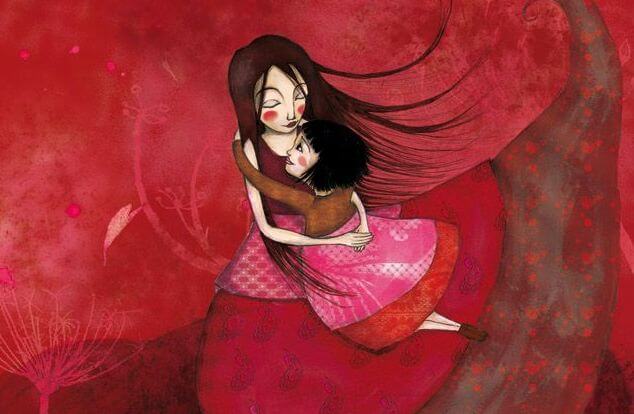At 30, The Quality Of Friends Is Worth More Than The Quantity


Written and verified by the psychologist Sergio De Dios González
A recent study by the APA (American Psychological Association) published in Psychology and Aging has shown what many of us suspected: as the years pass, the parameters of friendship change. Specifically, in your 30s, when the quality of your friends begins to count more than the quantity.
This study reveals that at 20, yes, we deal with a wide variety of people who enrich us in our worldview, influencing our personality and range of expectations.
But at 30 we are socially exhausted from entertaining other people and prefer more quality in our relationships.
Both types of relationships in these two age ranges had their long-term effect: people who had many friends at 20 and fewer at 30 but of better quality, showed greater psychological health at 50. The conclusion is not necessarily to but back on friends at 30…rather, we must properly select those that really improve our well-being.
Friendship throughout life
The importance we give to friendship remains constant throughout life, but in each of the stages it is manifested in one way or another.
When we are children we give more importance to the authority figures around us: parents and teachers. We interact with other children to gradually develop the awareness of our own individuality, to launch our emotional, cognitive and social skills through play and school.

In adolescence the concept of friendship changes dramatically. At this stage it is the relationships with our peers and not with our authority figures that will determine our character and our incipient formation of identity. This can be a turbulent time if we are not able to relate to other teenagers like us.
At this stage the friendship is intense, but will normalize in later youth, as friendship plays a crucial role in developing our personality, habits and interests. As we approach 30… these relationships are less numerous and more selective.
Friends at 20
When we are 20, our entire world is at a boiling point. We do not have many things clear but we act without fear and with a spontaneity that leads us to meet people. Sorrows are also very intensely experienced and we often struggle to find the balance between intimacy versus isolation.
“Friendship is more difficult and rarer than love. Therefore, we must save it however we can”
-Alberto Moravia-

We need to meet new people to be nourished by them, without too many prejudices or expectations. We risk ourselves continuously on a social scale with people that we don’t know because we need it, we need to enjoy our freedom and to see what we really want.
In this study a very interesting fact was also revealed: if at 20 we had very few friends, at 50 our health may be relevantly affected. The need to live each stage with intensity and the required attitude is not a myth.
At 20, we must have an curious attitude, a free spirit and energy to live all experiences conducive to that age: falling in love, seeing things clearly, traveling, dancing… and the more people we have around us, the better. This is the time to experience things, not rule things out without having done them.
Friendship at 30
As we approach 30, we start to become somewhat saturated from continuously meeting people, making plans with people whom we may not fully trust, or going out partying every weekend. We start looking for a higher quality in our friendships, whether they be numerous or not. We want to continue experiencing things but in the presence of pleasant company.
“If you are honest, you may not have many friends, but you’ll have the right ones”
-John Lennon-
This is determined by our desires but also by the circumstances: many of our friends in the past decade have gone along different paths. They have started a family or are working elsewhere. So this brings us to enjoy a typically smaller but also more united and more relaxed circle of friends, a group that is usually related by values and interests.

This longitudinal study (meaning, the same subjects were studied over many years) showed that people who had many friends and social experiences at this age experienced anxiety, boredom and the sense of being fed up, and furthermore that this was reflected at age 50. They seemed to be more unhappy than those who had lived this stage of a more intimate and calm manner.
A recent study by the APA (American Psychological Association) published in Psychology and Aging has shown what many of us suspected: as the years pass, the parameters of friendship change. Specifically, in your 30s, when the quality of your friends begins to count more than the quantity.
This study reveals that at 20, yes, we deal with a wide variety of people who enrich us in our worldview, influencing our personality and range of expectations.
But at 30 we are socially exhausted from entertaining other people and prefer more quality in our relationships.
Both types of relationships in these two age ranges had their long-term effect: people who had many friends at 20 and fewer at 30 but of better quality, showed greater psychological health at 50. The conclusion is not necessarily to but back on friends at 30…rather, we must properly select those that really improve our well-being.
Friendship throughout life
The importance we give to friendship remains constant throughout life, but in each of the stages it is manifested in one way or another.
When we are children we give more importance to the authority figures around us: parents and teachers. We interact with other children to gradually develop the awareness of our own individuality, to launch our emotional, cognitive and social skills through play and school.

In adolescence the concept of friendship changes dramatically. At this stage it is the relationships with our peers and not with our authority figures that will determine our character and our incipient formation of identity. This can be a turbulent time if we are not able to relate to other teenagers like us.
At this stage the friendship is intense, but will normalize in later youth, as friendship plays a crucial role in developing our personality, habits and interests. As we approach 30… these relationships are less numerous and more selective.
Friends at 20
When we are 20, our entire world is at a boiling point. We do not have many things clear but we act without fear and with a spontaneity that leads us to meet people. Sorrows are also very intensely experienced and we often struggle to find the balance between intimacy versus isolation.
“Friendship is more difficult and rarer than love. Therefore, we must save it however we can”
-Alberto Moravia-

We need to meet new people to be nourished by them, without too many prejudices or expectations. We risk ourselves continuously on a social scale with people that we don’t know because we need it, we need to enjoy our freedom and to see what we really want.
In this study a very interesting fact was also revealed: if at 20 we had very few friends, at 50 our health may be relevantly affected. The need to live each stage with intensity and the required attitude is not a myth.
At 20, we must have an curious attitude, a free spirit and energy to live all experiences conducive to that age: falling in love, seeing things clearly, traveling, dancing… and the more people we have around us, the better. This is the time to experience things, not rule things out without having done them.
Friendship at 30
As we approach 30, we start to become somewhat saturated from continuously meeting people, making plans with people whom we may not fully trust, or going out partying every weekend. We start looking for a higher quality in our friendships, whether they be numerous or not. We want to continue experiencing things but in the presence of pleasant company.
“If you are honest, you may not have many friends, but you’ll have the right ones”
-John Lennon-
This is determined by our desires but also by the circumstances: many of our friends in the past decade have gone along different paths. They have started a family or are working elsewhere. So this brings us to enjoy a typically smaller but also more united and more relaxed circle of friends, a group that is usually related by values and interests.

This longitudinal study (meaning, the same subjects were studied over many years) showed that people who had many friends and social experiences at this age experienced anxiety, boredom and the sense of being fed up, and furthermore that this was reflected at age 50. They seemed to be more unhappy than those who had lived this stage of a more intimate and calm manner.
This text is provided for informational purposes only and does not replace consultation with a professional. If in doubt, consult your specialist.







